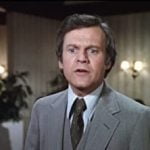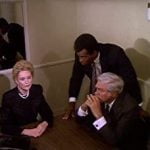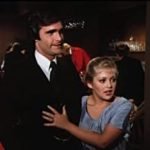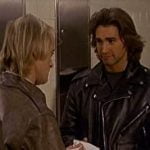
S3S2

S3S2
Table of Contents
Toggle
It was a classic “whodunit” that allowed audiences around the world to escape from their own lives and indulge in some much-needed liberation – even if it were only temporary. People everywhere were captivated by the suspenseful storyline, which focused on oil tycoon J.R Ewing and his family’s dysfunctional dynamics – especially when someone tried to take him out!
This article will explore why “Who Shot J.R?” became such a global phenomenon, what made it so popular, and how it captivated people’s attention across generational boundaries. We’ll also look at how it empowered viewers by providing them with a crucial opportunity for escapism during turbulent times – allowing folks to forget their reality, however briefly, and immerse themselves in another world instead.

The shooting of J.R. Ewing, the oil tycoon from Dallas, has been a mystery for decades – and continues to fascinate fans of the show. Could it be that his longtime rival, Cliff Barnes, pulled the trigger? Or was there somebody else with a motive? To get to the bottom of this iconic moment in television history, we must take a look back at who J.R. was, and what he did to make himself so powerful – and so hated.
J.R.’s ruthless tactics brought him wealth and power, but also generated quite a few enemies along the way. His lavish lifestyle made him a target of envy as well as hatred among those who lived around him in Texas. He had numerous affairs which caused much scandal within his family – not least because some ended badly when J.R refused to commit or pay off his partners when they requested money or marriage proposals, respectively.
It could be said that many people wanted revenge against J.R., especially Cliff Barnes: an old business partner turned enemy whose grudge ran deep against J.R.. With all these potential suspects in mind it’s no wonder why viewers have remained intrigued by who shot J.R..

With so many potential suspects, it’s no surprise that the question of who shot J.R. has remained unanswered for all these years. To try and narrow down our search we have to consider each suspect’s motive for wanting revenge on J.R.. From his bitter business rival Cliff Barnes, to any number of scorned lovers or betrayed associates – there is no shortage of people with a bone to pick with the oil tycoon. As such, let us now examine some of the possible motives behind this iconic shooting.

Revenge, power, and money – these are the three motives that could have driven a person to shoot J.R.. From his many vengeful rivals in business to any number of people with more sinister agendas, there is no shortage of suspects whose hatred for the oil tycoon would have been strong enough to inspire them to commit such an act. But who amongst this long list of potential shooters had sufficient motive and opportunity? Let us now explore some possible candidates.
TIP: Even though it’s impossible to know exactly why someone wanted revenge on J.R., we can still speculate as to how they may have benefited from the act – be it financially or otherwise.

An analysis of the suspects reveals a wide range of people who could benefit from J.R.’s death. From those he had wronged in business to his many rivals, there are several individuals whose motives for shooting him may have been driven by revenge or personal gain. Let’s take a closer look at some potential beneficiaries:
• J.R.’s enemies – He was known to be ruthless when it came to making money and this led to numerous powerful adversaries throughout Dallas; any number of these people could have wanted retribution against him.
• His competitors – In addition to making enemies, J.R. also made plenty of wealthy competitors over the years; if one of them saw an opportunity to gain more control over their own businesses, they might have taken advantage of it.
• His family members – Though not as likely as other suspects on this list, it’s still possible that someone within his immediate circle would want revenge after being mistreated by J.R., which could explain why they would commit such an act against him.
• A complete stranger – As unlikely as it sounds, it is entirely plausible that someone with no connection whatsoever decided to shoot J.R.. While we cannot rule out anyone from our list above, we must consider all possibilities before drawing any conclusions about who shot the oil tycoon.
It is clear that multiple parties had reasons for wanting justice served upon J.R., but without further investigation into the crime itself, we can only speculate as to what truly happened that fateful night in Dallas… With that in mind, let us now turn our attention towards uncovering the truth behind this mysterious incident

Now that we have reviewed the potential suspects and their motives, it’s time to dig deeper into the actual incident itself. In order to get closer to uncovering who shot J.R., an investigation must be carried out in order to determine exactly what happened on the fateful evening of November 21st 1980.
The first step is gathering evidence from witnesses; anyone who was in close proximity at the time of the shooting could provide valuable insight as to what went down that night. Eyewitness accounts can be quite telling, so it is essential for investigators to do a thorough job of interviewing all relevant people and collecting any physical clues found at the scene. This includes analyzing bullet trajectories, fingerprint analysis and other forensic techniques which may reveal more about who pulled the trigger.
In addition, access must also be granted to analyze any surveillance footage available around the area where J.R. was shot and possibly even examine his financial records or emails if necessary. All this information can help build up a strong case against whomever committed this heinous crime – but only with proper examination of these materials will justice truly be served upon those responsible for such a dastardly deed.

The relationship between J.R. and his shooter is one that begs further investigation in order to understand why such a tragedy unfolded on that fateful night. To illustrate this, take the case of fictious “Bob Smith” – an individual with no prior criminal record who was driven by rage and jealousy to shoot his neighbor after learning that he had been unfaithful to his wife. In many ways, this story serves as an example of how any seemingly normal person can be pushed over the edge when faced with certain circumstances or emotions.
In order for justice to be served in wake of these horrific events, it’s important to not only unravel the connection between J.R. and his shooter but also explore what could have motivated them:
Answers to these questions are essential if we’re ever going to get closer towards understanding why this happened – finding out why someone would do something so heinous can help society progress forward in dealing with similar situations in future. With enough evidence pointing towards a particular suspect, authorities can move onto arrest and prosecution of the shooter…

Since the day J.R. was shot, speculation has run rampant as to who pulled the trigger and why they did it. Various theories have been put forward, ranging from plausible motives to downright outlandish ones. Here are some of the more popular conspiracy theories surrounding the shooting:
• That J.R.’s wife Sue Ellen (Linda Gray) orchestrated the shooting out of revenge for his infidelities;
• That a secret organization wanted him silenced due to his involvement in shady business dealings;
• That an anonymous fan had done it out of love for one of the show’s characters.
While these ideas may never be proven true, it is clear that there remains both curiosity and interest around this event long after its occurrence – something which speaks volumes about its importance in our cultural history and how much people still care about finding out what happened on that fateful night in Dallas. As such, many fans were relieved when closure finally arrived with regards to this mystery…

After 8 months of speculation and debate, fans of Dallas finally got the closure they had been waiting for in the fourth episode of the fourth season titled “Who Done It.” With an estimated 83 million American viewers tuning in, one of the most watched television broadcasts of all time.
In the dramatic episode, it was revealed that Kristin Shepard (Mary Crosby), J.R.’s sister-in-law and Sue Ellen’s former best friend, was responsible for shooting him in an act of revenge. This answer finally put to rest questions which had lingered since the show’s beginning – questions which many viewers had already begun forming answers to on their own.
The revelation gave fans the chance to feel satisfied with how the mystery surrounding J.R.’s shooting concluded, allowing them to find some sense of resolution after so many seasons filled with cliffhangers and suspense. It also provided insight into why certain characters acted as they did throughout the series, giving much needed context to events from long ago – something people didn’t realize until this momentous day arrived.

The mystery of who shot J.R. Ewing has finally been solved and the legacy of this iconic television character lives on in popular culture. The story behind J.R.’s shooting is one that will remain a part of TV history for generations to come, as it symbolizes how far someone can go when they are driven by revenge or greed.
J.R.’s death was also symbolic of the power struggle between good and evil, with his murderer being an unlikely hero who stepped up to make things right again. This act of courage inspired many people around the world and gave them hope that justice still exists in our society today.
Ultimately, the closure brought about by knowing who shot J.R., along with its lasting impact on pop culture, proves just how powerful a single event can be in changing the course of history – both personal and universal. It’s my hope that we all take a moment to reflect on this beloved character’s life, from beginning to end, so we can appreciate what he represented: strength, resilience, and above all else – love!
Click on a star to rate it!
Average rating 0 / 5. Vote count: 0
No votes so far! Be the first to rate this post.
We are sorry that this post was not useful for you!
Let us improve this post!
Tell us how we can improve this post?
Before retirement, Dora was the editor and publisher of various online magazines. For example, she edited and published GEnie Lamp – an online magazine for General Electric’s Information Service (GEIS) – and the BBS Magazine, TeleTalk Online.
Now retired, Dora and her husband, Mike, enjoy RV traveling, camping, and meeting fellow campers.